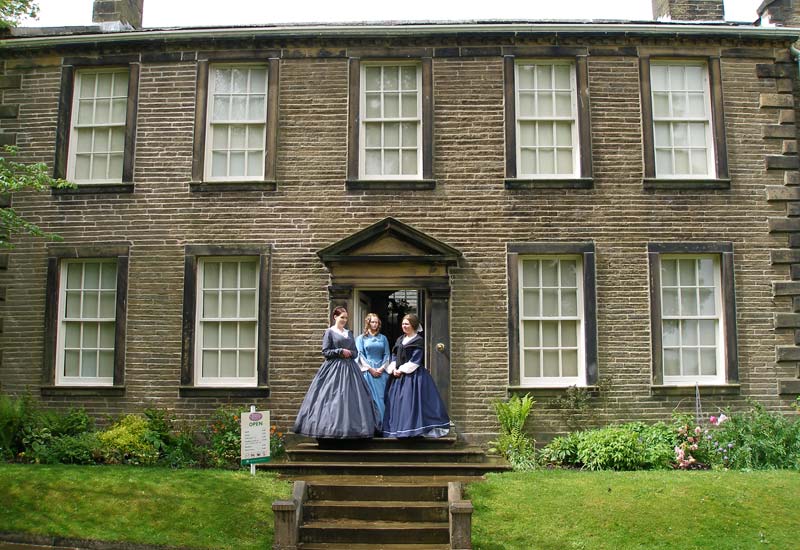In light of the recent terrorist atrocities in Manchester and London, and at other locations around the world, it is easy to sink into a slough of despond. That’s when the power of art and literature becomes even more important; the power to lift the gloom and show us a greater, more exhilarating side of human nature.
This is certainly the path that Anne Brontë took whenever woes oppressed her, and she found the writing of poetry and the reading of poetry to be particularly cathartic. This poem was originally titled ‘Monday Night May 11th 1846′, so at least we know when Anne wrote it, but Charlotte later entitled it ‘Domestic Peace’.
It seems that on the day of May 11th there had been some sort of argument at the Haworth Parsonage that had ended in an uneasy silence and withdrawal. The date is significant, as it was the time when ‘Poems by Currer, Ellis and Acton Bell‘ was in the process of being published, and it is possible that this had re-opened the original argument between Charlotte and Emily – seeing her work in print and exposed to the public was almost more than the reclusive Emily could bear, and she was now regretting acquiescing to the scheme.

In this poem, Anne looks back to a time when the sisters were happy and at peace with each other. Yes, the Brontë sisters had tensions and arguments just like any other family, and yet they also possessed a great love for each other that would always see them reconciled. Anne’s message is simple: we must turn aside from worldly thoughts, and remember that above all else the thing we should seek is peace.
When we read this beautiful poem let us too become reconciled to one other, and look again for joy and happiness. The happiness that can come from walking in nature in the sunshine, looking up to a bright and full moon, listening to gentle music, or taking a break from the everyday stresses and strains by reading the works of the Brontës – here is ‘Domestic Peace’ by Anne Brontë:
Why should such gloomy silence reign;
And why is all the house so drear,
When neither danger, sickness, pain,
Nor death, nor want have entered here?
We are as many as we were
That other night, when all were gay,
And full of hope, and free from care;
Yet, is there something gone away.
The moon without as pure and calm
Is shining as that night she shone;
but now, to us she brings no balm,
For something from our hearts is gone.
Something whose absence leaves a void,
A cheerless want in every heart.
Each feels the bliss of all destroyed
And mourns the change – but each apart.
The fire is burning in the grate
As redly as it used to burn,
But still the hearth is desolate
Till Mirth and Love with Peace return.
‘Twas Peace that flowed from heart to heart
With looks and smiles that spoke of Heaven,
And gave us language to impart
The blissful thoughts itself had given.
Sweet child of Heaven, and joy of earth!
O, when will Man thy value learn?
We rudely drove thee from our hearth,
And vainly sigh for thy return.

Just to say it’s a lovely poem.
I like this, very nice poem
True this indeed a beautiful post. This poem tells the pleasure of English.??????
Very helpful!!
Loved it???